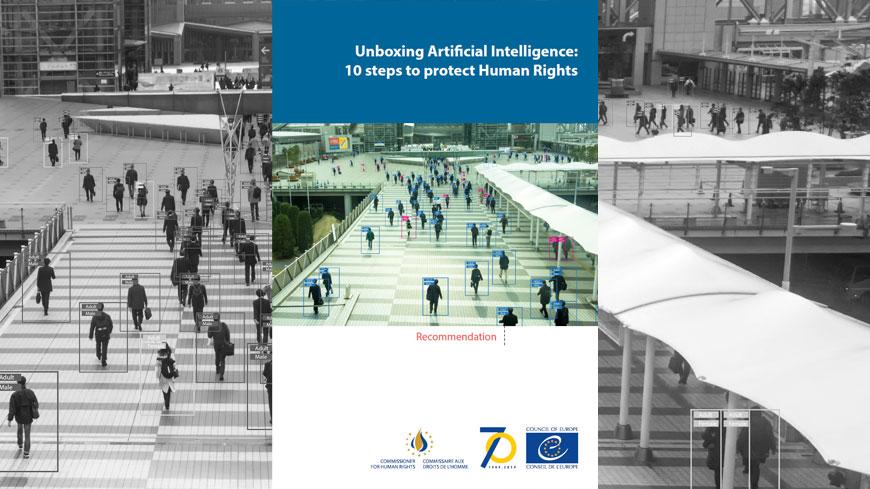“Ensuring that human rights are strengthened and not undermined by artificial intelligence is one of the key factors that will define the world we live in”, says Council of Europe Commissioner for Human Rights, Dunja Mijatović, in a Recommendation published today.
This Recommendation – entitled “Unboxing artificial intelligence: 10 steps to protect human rights” – provides a number of steps which national authorities can take to maximise the potential of artificial intelligence systems and prevent or mitigate the negative impact they may have on people’s lives and rights. It focuses on 10 key areas of action:
- human rights impact assessment;
- public consultations;
- human rights standards in the private sector;
- information and transparency;
- independent oversight;
- non-discrimination and equality;
- data protection and privacy;
- freedom of expression, freedom of assembly and association, and the right to work;
- access to remedies; and
- the promotion of artificial intelligence literacy.
The Recommendation also contains an annexed checklist to help implement the measures recommended in each key area.
“Artificial intelligence driven technology is entering more aspects of every individual’s life, from smart home appliances to social media applications, and it is increasingly being utilised by public authorities to evaluate people’s personality or skills, allocate resources, and otherwise make decisions that can have real and serious consequences for the human rights of individuals. Finding the right balance between technological development and human rights protection is therefore an urgent matter”, says Commissioner Mijatović.
The Recommendation builds on work done in this area by the Council of Europe, as well as other international organisations. It is rooted in the existing universal, binding and actionable framework provided by the international human rights system.



